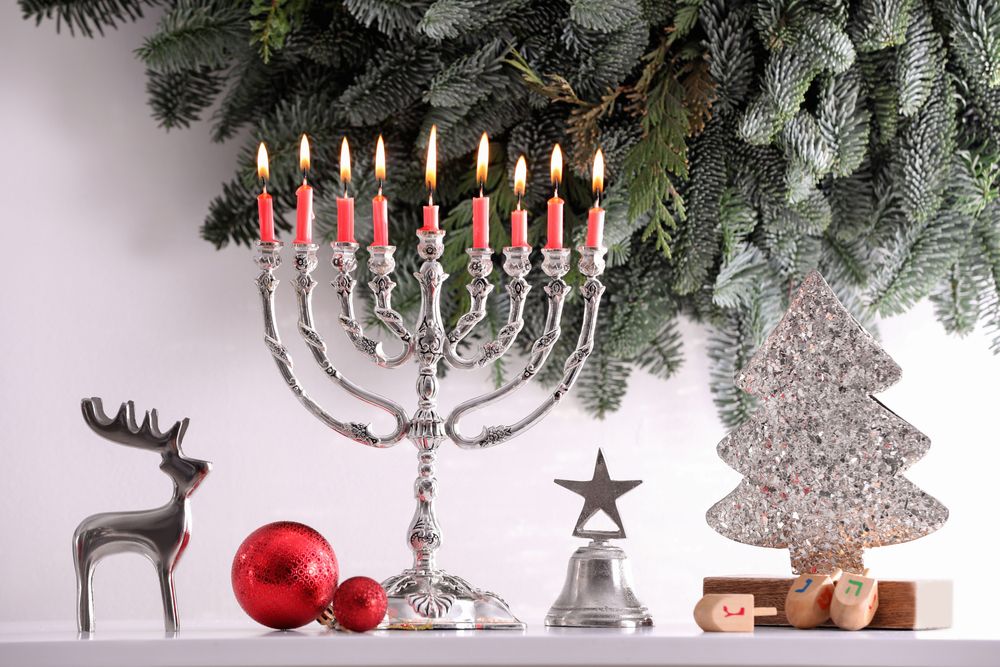
Religious diversity has the power to enrich family celebrations, but it’s all about how families approach it. A growing number of American families celebrate multiple religious traditions throughout the year.
Parents from different faith backgrounds face unique opportunities and challenges as they honor their heritage and their partner's beliefs. Modern interfaith families create meaningful celebrations that respect and embrace their diverse spiritual paths.
How Do Families Choose Which Holidays to Celebrate?
Religious identity runs deep in most families. When parents come from different faith traditions, deciding which holidays to observe requires open communication and mutual respect. Many families opt to celebrate major holidays from both religions, creating a rich tapestry of traditions for their children.
Successful interfaith families understand that they should prioritize each celebration's spiritual meaning over strict religious observance. Parents work together to identify shared values across their faiths, using holidays as opportunities to teach children about both traditions.
Can Children Understand Multiple Religious Traditions?
When given clear, age-appropriate explanations, children naturally embrace the customs and celebrations of both parents. Young minds generally grasp religious diversity more easily than adults might expect. Parents who present multiple faith traditions as complementary rather than competing help their children develop a broad spiritual understanding.
Key strategies for teaching children about different faiths include:
- Explaining holiday origins and meanings at their level
- Reading stories from both religious traditions
- Involving extended family in holiday celebrations
- Creating unique family traditions that blend both faiths
When Extended Family Gets Involved
Extended family members play crucial roles in passing down religious traditions. Some grandparents worry about diluting their faith traditions or losing their cultural heritage. However, the most successful interfaith families address these concerns through honest conversations and active inclusion of both sides in holiday celebrations.
Setting clear boundaries with extended family helps prevent holiday stress. Many families establish their own celebration schedules to accommodate both religious traditions without overwhelming their calendars.
Making Space for Both Traditions
Physical space matters in holiday celebrations. Many interfaith families create designated areas for different religious symbols and decorations. A Christmas tree might share space with a menorah, or Diwali lights might illuminate a space near Buddhist offerings.
Holiday meals are another opportunity to blend traditions. Families can incorporate traditional foods from both faiths into their celebrations to create unique fusion celebrations that honor both heritages.
How Do Families Handle Conflicting Holidays?
When major holidays overlap, interfaith families get creative. They might celebrate on alternate days or create combined observances that respect both traditions. Some families alternate which holiday receives primary focus each year to make sure both faiths receive equal attention.
Flexibility and planning help prevent holiday conflicts. Many families maintain calendars marking important dates from both religions, allowing them to prepare for and honor each celebration appropriately.
What Makes Holiday Traditions Last?
Enduring interfaith traditions comes from genuine understanding and respect, not obligation or compromise. Each celebration offers a chance to learn more about one another's beliefs and heritage.
When families approach their dual faiths with open hearts, holidays become joyful opportunities to honor both sides of their story. Creating lasting traditions means letting both faiths authentically shine while remaining flexible about how celebrations unfold.
Moving Forward with Faith and Family
Interfaith holiday celebrations strengthen family bonds through understanding and respect. Children raised with multiple religious traditions often develop a strong appreciation for diversity and spiritual depth. Parents who navigate these waters successfully create lasting legacies of inclusion and acceptance.
Remember, every interfaith family finds their own unique path. Creating meaningful holiday traditions takes time, patience, and love — but the reward is a rich family life filled with diverse spiritual celebrations and understanding.



